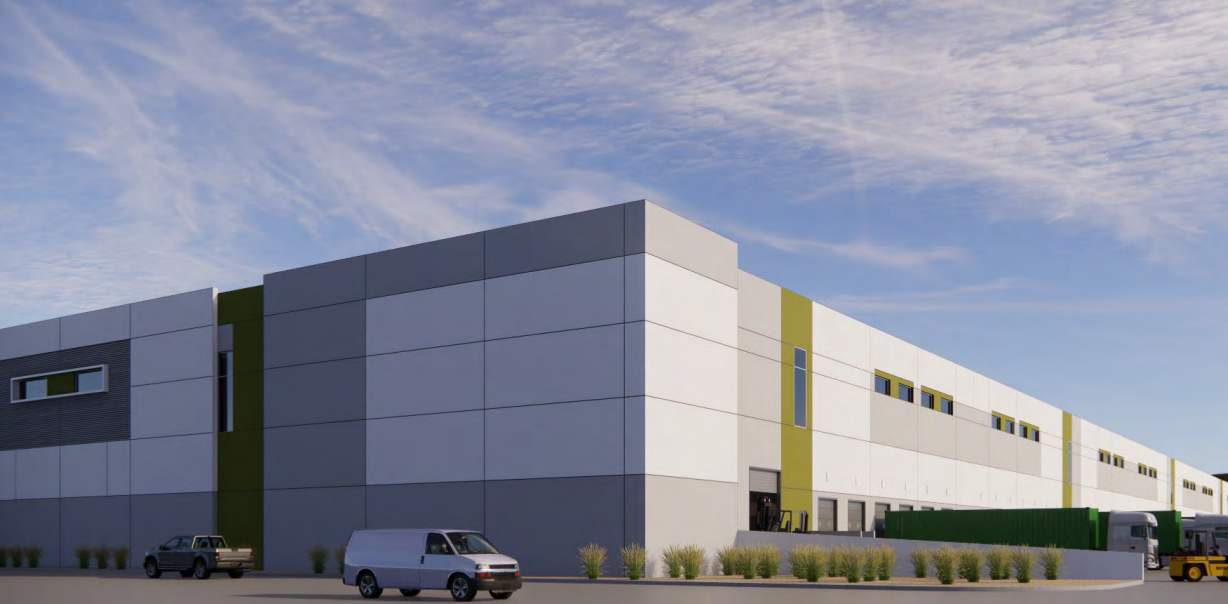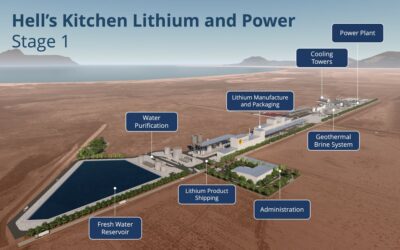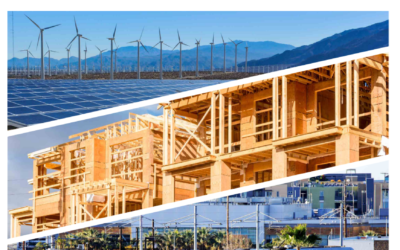The Palm Springs Planning Commission has approved a major development permit for a 739,360-square-foot warehouse facility. In a 4-0 vote at its hearing on December 4, the commission approved the project with conditions to mitigate impacts and align with city goals.
Located at the corner of North Indian Canyon Drive and 19th Avenue, the fulfillment center by PS Canyon Development, LLC is expected to operate 24/7 and employ more than 700 people. While proponents highlight its economic benefits, including an annual payroll estimated at $65 million to $75 million, opponents raised concerns about increased greenhouse gas (GHG) emissions, traffic congestion, and potential impacts on the region’s tourism-based economy.
Key Conditions of Approval
To address public and environmental concerns, the commission attached conditions to its approval, including:
- Requirements for indoor and outdoor employee break areas and food truck access to reduce offsite traffic.
- Mandates for zero-emission heavy-duty truck fleets as soon as feasible.
- Purchase of 100% carbon-free power from Desert Community Energy if onsite solar arrays do not meet all energy needs.
- Enhanced landscaping and setback requirements to minimize visual impacts.
These measures aim to improve compatibility with Palm Springs’ vision for sustainable growth while allowing the project to move forward.
Environmental Impact Report and Mitigation Measures
The project complies with the city’s 2022 zoning ordinance changes, which designated certain areas north of Interstate 10 for large warehouse and logistics developments. However, the required Environmental Impact Report (EIR) identified significant and unavoidable impacts on GHG emissions and transportation. Despite proposed mitigation measures – such as rideshare programs, onsite bicycle facilities, and telecommuting options – the project’s environmental footprint remains a point of contention among some local residents.
The Planning Commission adopted a Statement of Overriding Considerations (SOC), citing the project’s potential to generate substantial economic and infrastructure benefits as justification for approval. Commissioners acknowledged the challenges but emphasized the city’s need for economic development.
Economic and Community Implications
Representing PS Canyon Development, David Snyder emphasized the project’s economic potential. “The estimated 700-plus jobs are permanent jobs in logistics, operations, and management,” he said, highlighting the broader benefits for Palm Springs, including increased tax revenue and local infrastructure improvements. He also referred to estimates for an Amazon fulfillment center now under construction nearby in Desert Hot Springs of 1,800 workers for a smaller facility, alluding to the notion that his Palm Springs facility could generate more than the 718 jobs estimated in his application.
Snyder also stated that the estimated $1 million in property tax revenue the facility will yield to the city when it is complete will likely be more in the range of $1.6 million based on his estimates of the assessed valuation.
While PS Canyon Development will build and own the facility, it will not use the new space. Instead, it will seek to lease space to a logistics business that can either be a direct seller of products or a company that serves product sellers. There is a huge difference between the types of space users when it comes to generating tax revenue for the city of Palm Springs. At this point, the direct revenue outlook points to the city receiving property tax revenue only.
According to the California Department of Tax and Fee Administration (CDTFA), “When a company operates a fulfillment center and fulfills an order on behalf of the seller of the goods, the fulfillment center is performing a service and not selling goods. If the fulfillment center only provides this service for the owners of the goods and does not sell goods, the fulfillment center is not required to register with CDTFA, nor is it responsible for reporting and paying the sales or use tax to CDTFA.” In this case, the sales tax would be paid by the online seller to the city in which the customer resides. The other situation is when a product seller operates the fulfillment center and ships goods directly to the final consumer. In that case, the “point of sale” is determined to be the fulfillment center, and sales tax will be paid to the city where the fulfillment center operates.
The Broader Context: AB98 and Warehouse Development
The approval comes as California prepares to implement Assembly Bill 98 (AB98) in 2026, legislation designed to impose stricter standards on warehouse developments statewide. AB98 will require:
- Setbacks of several hundred feet from sensitive sites, such as homes and schools.
- Compliance with enhanced energy efficiency and design standards.
- Replacement of affordable housing at a 2:1 ratio if housing is demolished for a project.
While AB98 does not apply to this project, it underscores growing scrutiny of warehouse developments and could reshape future projects in Palm Springs. Critics argue the law falls short of state recommendations for 1,000-foot setbacks from sensitive areas, while supporters see it as a step toward balancing economic growth and environmental health.
Next Steps
The project’s approval is subject to appeal within 10 days to the Palm Springs City Council. If constructed, it will be one of the largest warehouse developments in Greater Palm Springs, serving as a benchmark for how the region navigates the complex interplay of economic opportunity, environmental responsibility, and evolving regulations like AB98.
Greater Palm Springs residents, environmental advocates, and business leaders will be watching closely as the city grapples with these competing priorities, setting a precedent for future development in the region.




